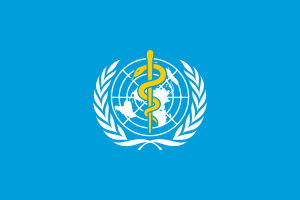 Image by hebedesign via Flickr
Image by hebedesign via FlickrBy Beverly Caboteja
I am all here all alone in my room looking at my family picture, feeling nostalgic. I can not help but miss my family. As I continued gazing upon it, I started to ask, why some parents can’t get married and stay get married? Why do some relationships fail? Why do families break up?
Maybe some of you have also asked the same question. Even I myself wondered why did I ask such question when in fact, I had not experienced such scenario myself.
Probably, nobody who has ever lived wished that they grow in a broken family. Nobody does. Too often we dream to be in a family where love and care always reside- a family where each member brings out the best in us. But there are always exceptions to everything. What if your family is missing a mom or dad because of separation? What might have gone wrong in the course of their marriage?
According to Justice Pineda, marriage without love is like running engine without oil. Sooner or later the engine will burn down. He added, that living together under one roof without love is to live in turmoil soaked in mental torture and suffering. So, why are these given emphasis?
Many might be caught unaware, but the law obliges the spouses now to love each other, that is to have devoted affection for one another. This calls for a relationship which is more emotional than legal, But where there is the fortune of devotion, whether spontaneous or induced, the resulting harmony and openness to sacrifice pleasantly enhance the aims of matrimonial life.
Art 149 of the Family Code of the Philippines regards the family as a basic social institution and as the foundation of the nation. This Article is in line with the policy of the State as expressed in the 1987 Constitution, to protect and strengthen the family. Hence, as mandated, “no custom, practice or agreement destructive of the family shall be recognized or given effect. “ I just remembered then one of the cases we discussed in our Family Relations class and the same was published in one of the articles of Jose V. Sison in “A law each day” of the Philippine Star.
I got amazed that studying cases in law school is also like reading short stories. But, I may say, they are not only ordinary stories. Such stories depict true pictures of life- realities at that- where any person, boy or girl, rich or poor alike can experience. Just like the story of a woman who endured almost 20 years of torture and suffering for the sake of preserving the sanctity of marriage as an inviolable social institution and the foundation of the family. The irony of her case is that when she could no longer endure the tempestuous and cruel relationship she’s even blamed for the break-up. This is the story of Thelma.
Thelma got married to Randy and they were blessed with three healthy boys. But their burning love story only lasted for three years. This resulted to their almost everyday fights. Their frequent quarrels and misunderstanding made both of their lives miserable and hellish. Everyday seemed to be a battle ground for them.
Randy blamed Thelma for being negligent of her wifely duties and for not reporting to him the wrongdoings of their children. And these quarrels were always punctuated by violence, threats and intimidation by Randy against Thelma and their children. In the process, insulting words and language were heaped upon Thelma. As an aftermath of these quarrels, Thelma would sustain bruises and scars all over her body. Thelma suffered and endured the mental and physical anguish arising from these marital fights.
But Thelma reached to a point that she could no longer succumb to such agony. It was Christmas season in 1995, when Thelma protested Randy’s decision to allow their eldest son to travel to a far away place in another city down south. As a result of the heated argument, Thelma sustained bruises all over her body and face, blood clots, and bumps on her head. When she was down on the floor because of a blow in the stomach, Randy hit her head and pointed a gun at her and asked her to leave the house.
Without second thoughts, she left the house. She went to her sister and was accompanied by her other siblings to their parents where her injuries were treated by a doctor. After how many months, Thelma filed a complaint for legal separation invoking article 55 (1) of the Family Code, because of Randy’s physical violence, threats, intimidation and grossly abusive conduct. This article provides for the grounds where legal separation may be filed. Under this provision, the act must be directed against the (a) spouse, or (b) a common child, or (c) child of the other spouse in a previous relationship, or (d) an adopted child. The violence must be physical, and the gross abuse can be abusive words or language.
The facts of the case would show that indeed there was physical violence and gross abuse inflicted to the aggrieved party Thelma.
On Randy’s part, alibi and denial could only be his lamest defenses. While he admitted that that they had really quarrelled on December 9, 1995, he said he was the one who left their house and stayed in their Greenhills Condominium until five days later when he returned on December 14, 1995 and learned that Thelma had already left the house. He then averred that Thelma’s petition for legal separation should be denied since she is guilty of abandonment.
He raised the defense, that under Article 56 (4) of the FC, the petition for legal separation shall be denied when both parties have given ground for it. Clearly, Randy would not want a legal separation as their conjugal properties would be liquidated and Thelma would get her share.
This case then raises an issue whether or not Randy is correct on his defense?
The Supreme Court answers in negative. The abandonment referred to by the Family Code is abandonment without justifiable cause for more than one year. In this case, Thelma has left Randy due to the latter’s gross abusive conduct. Such abandonment is not the abandonment contemplated by the said provision (Art 56 (4) FC).
The concept of abandonment, as predicated by law, is the “desertion of the conjugal dwelling without intention of returning. There must be an absolute cessation of marital relations, duties and rights with intention of perpetual separation.” This must not only be physical estrangement but also amounts to financial and moral desertion. As to the presumption of abandonment, the same must be rebutted by the presentation of clear, strong and convincing evidence that the absent spouse did not intend to leave the present spouse and the family. Furthermore, the law requires, for purposes of legal separation, an abandonment of the other spouse for more than one year which must be unjustified.
In the given case, Thelma has adequately proven the presence of a ground for legal separation. The repeated physical violence and grossly abusive conduct directed against the petitioner are lucid and sufficient grounds for the prayed relief. The everyday bruises, scars, black eye and blows bore by Thelma are ample evidences of repeated physical violence. Hence, she is entitled to the relief as provided by law.
It is further noted in this case that, “our Constitution is indeed committed to the policy of strengthening the family as a basic social institution. But it does not establish the parameters of State protection to marriage and the family as that remains within the province of the legislature which shall define all legal aspects of marriage and prescribe the strategy and the modalities to protect it and put into operation the constitutional provision that protect the same.”
With the enactment of the Family Code, Randy’s undeserved acts could not be tolerated by law especially if they demean the rights of Thelma who all the while has tried to salvage the entire household. This would also defeat the purpose of meeting the ends of justice. (Ong vs. Ong, G.R. 153206, October 23, 2006)
So just like any short story, the story of Thelma, imposes a dispassionate reflection. The choice of a lifetime marriage partner is certainly one of the most important decisions a person can make. And that every family is unique, with each marriage partner bringing experiences and values from his or her own family. Unfortunately, there is no such thing as a perfect marriage, “a marriage made in heaven”.
No. Not at all.









